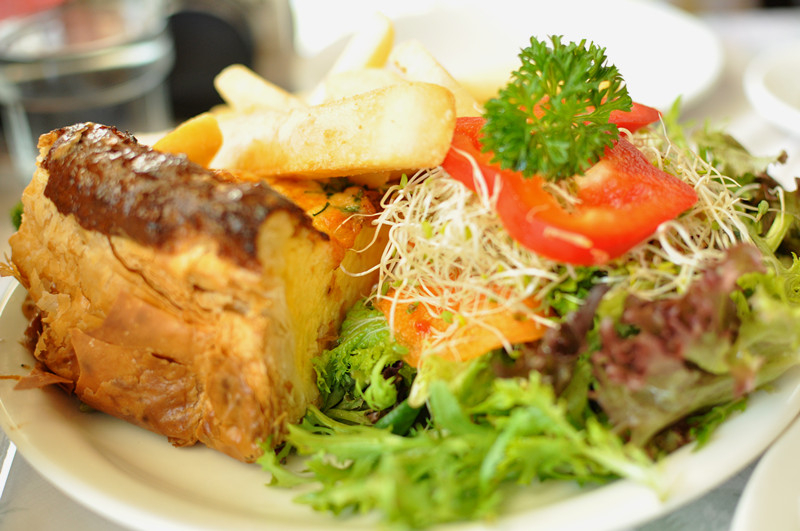The smell of a rich dessert can make your mouthwater. But can an extra helping of its smell help you eat less?
丰富的餐后甜点让你流口水,不过它的味道能有额外的作用,帮助你减少食欲吗?
To find out, researchers enlisted 10 adults, lots of vanilla custard and zero spoons—because the custard was squeezed directly into each subject's mouth, in amounts the subject controlled. With each taste, subjects also got a blast of the custard aroma puffed into the back part of their nose.
为了探究这个问题,研究者们找来了10个成人、许多香草蛋奶糊和空调羹——因为蛋奶糊是被直接挤进每个参与者的嘴里,数量由他们自己控制。每一种味道都尝试了一下,蛋奶糊芳香气味也飘进了他们的鼻子中。

And when subjects smelled a stronger custard aroma, they took smaller samples than when the scent was weaker or imperceptible. The findings are in the journal Flavour. [Rene de Wijk et al., "Food Aroma Affects Bite Size," link to come.]
当参与者金额闻到一股强烈的蛋奶糊香味时,相比较气味弱一点或者是几乎闻不到气味时,他们的食欲会小一点。研究结果刊登在香味杂志上(雷内·德·韦克以及其他人得出了相关的结论,“食物的香味影会让你每一口吃得更少。”)
Why the smaller portions? The stronger aroma might signal to the brain that the food is richer and higher in calories—thus more filling. But regardless of mechanism, the researchers suggest that making food more aromatic might induce people to take smaller mouthfuls. And such smaller bites have been shown to help people feel fuller faster and eat less overall.
为什么每一口吃得更少呢呢?香味更强烈的食物似乎在向大脑传递一个信号:这种食物更加油腻、更富于卡路里——因此吃一点点就有饱腹的感觉。尽管道理是这样,研究者建议让食品的香味更浓郁,来引导人们每一口少吃一点。每一口少吃一点就可以帮助人们在更短的时间内产生饱腹感,整体的食量也就变小了。
A whiff of a madeleine prompted Proust to remember an entire life. But many people would be grateful if it just helped them lose a few pounds.
玛德琳蛋糕的细微香味让普鲁斯特印象深刻,这种感觉保持了一生。但是如果这种方法真的能帮助人减肥的话,许多人或许会因此感恩。













